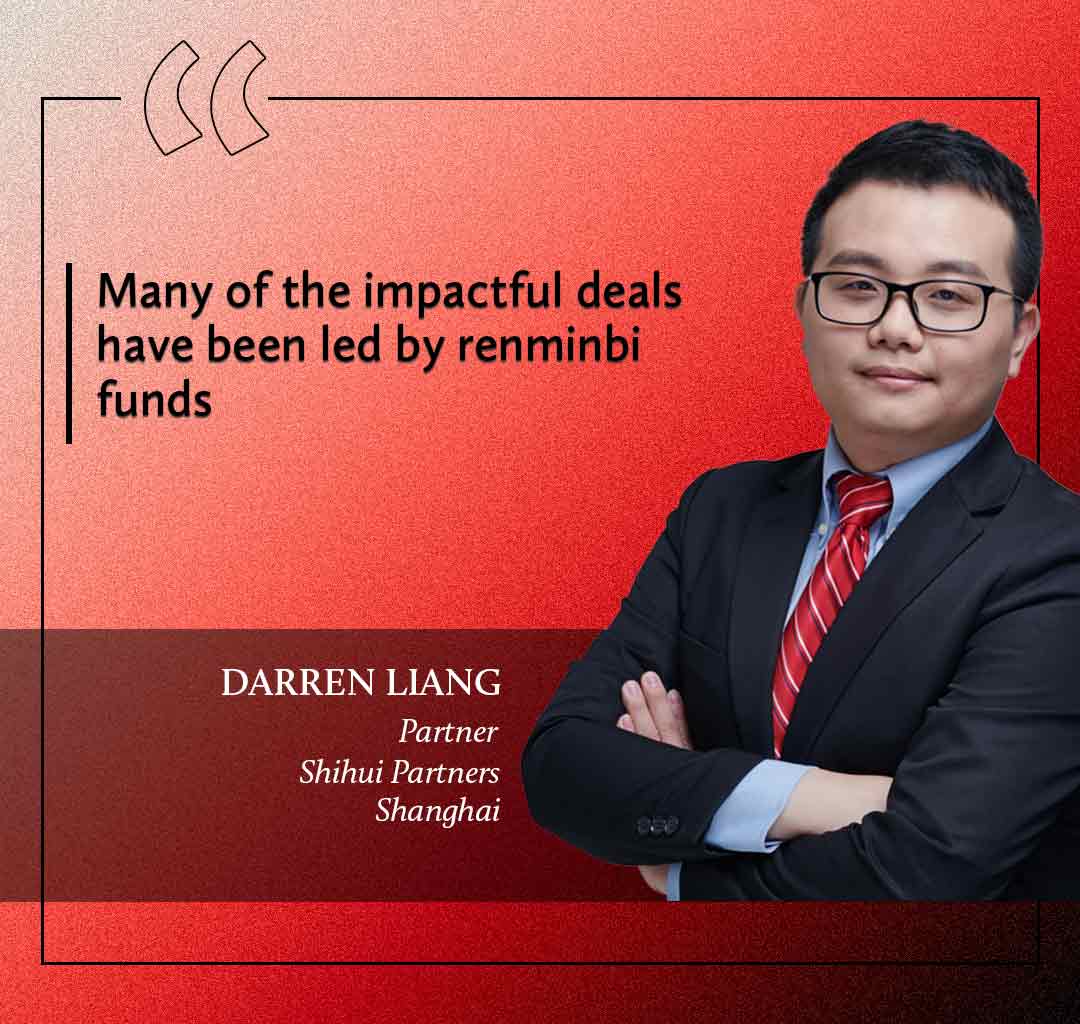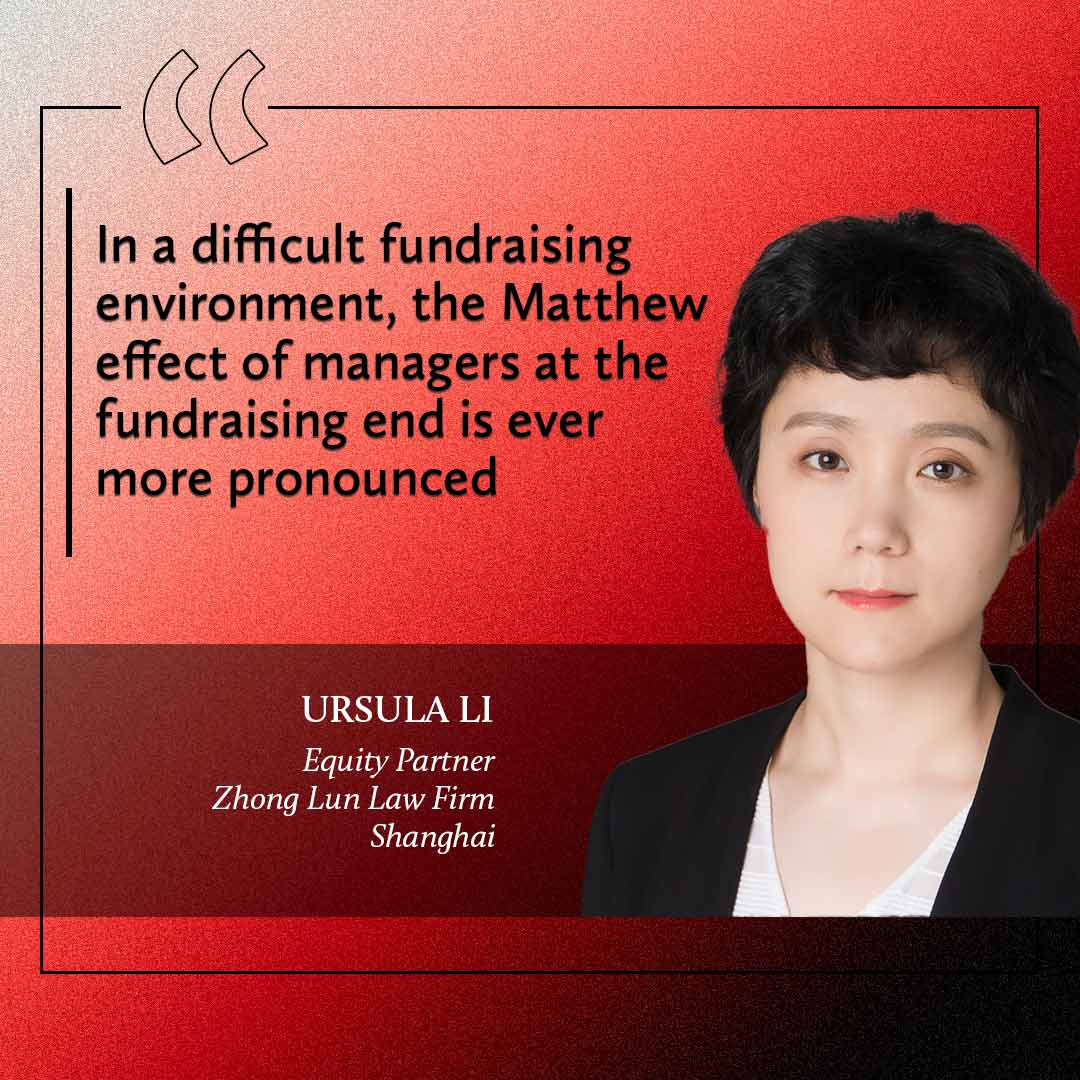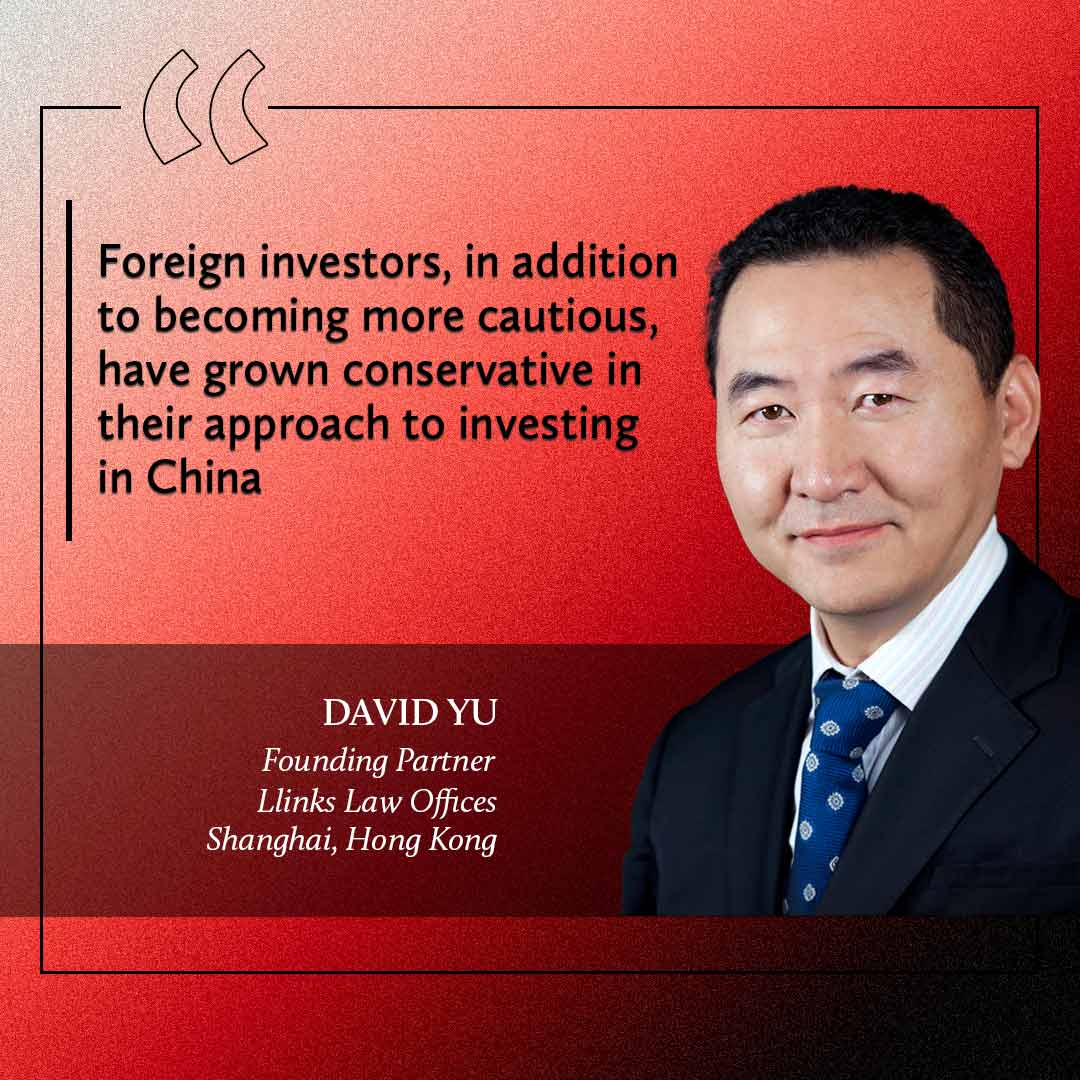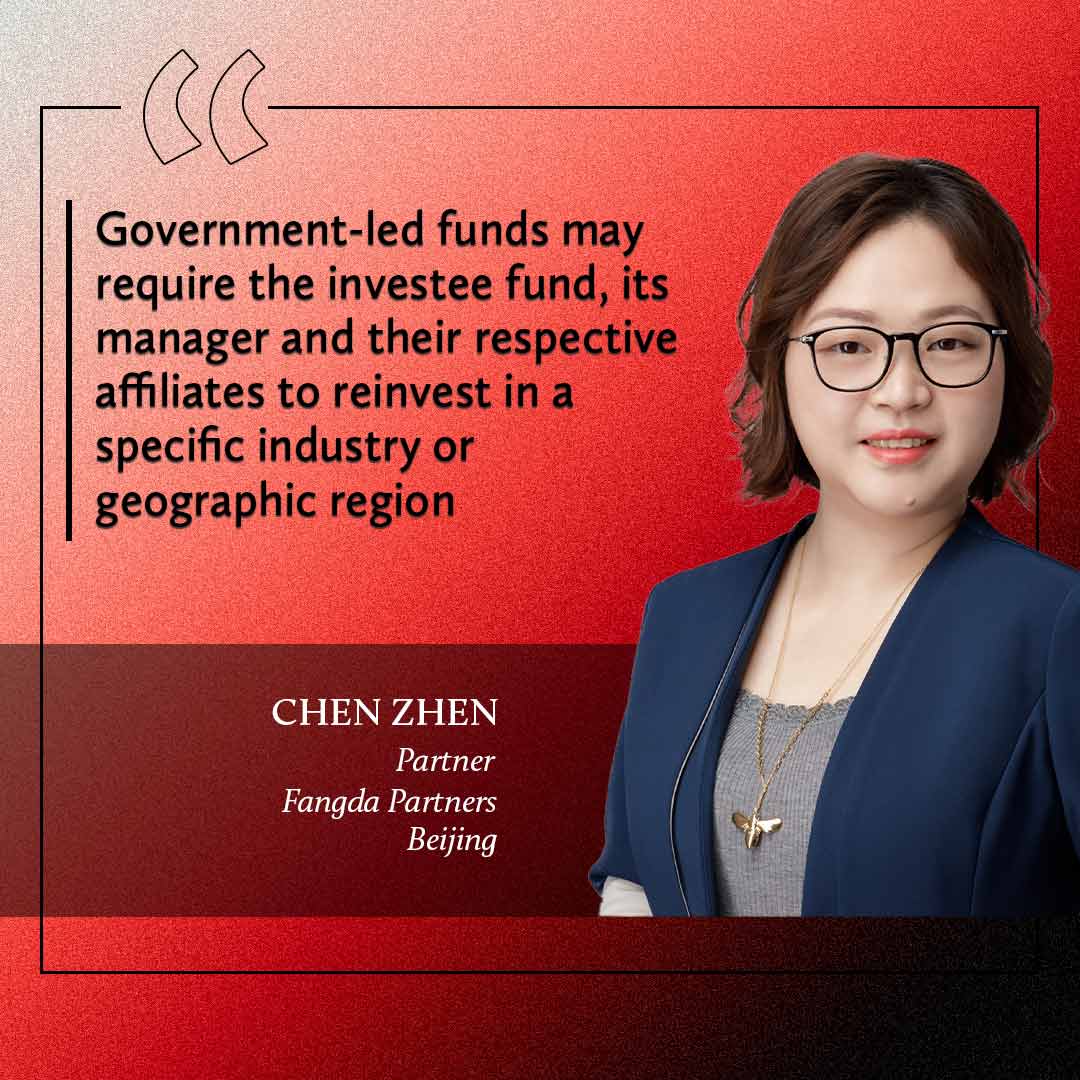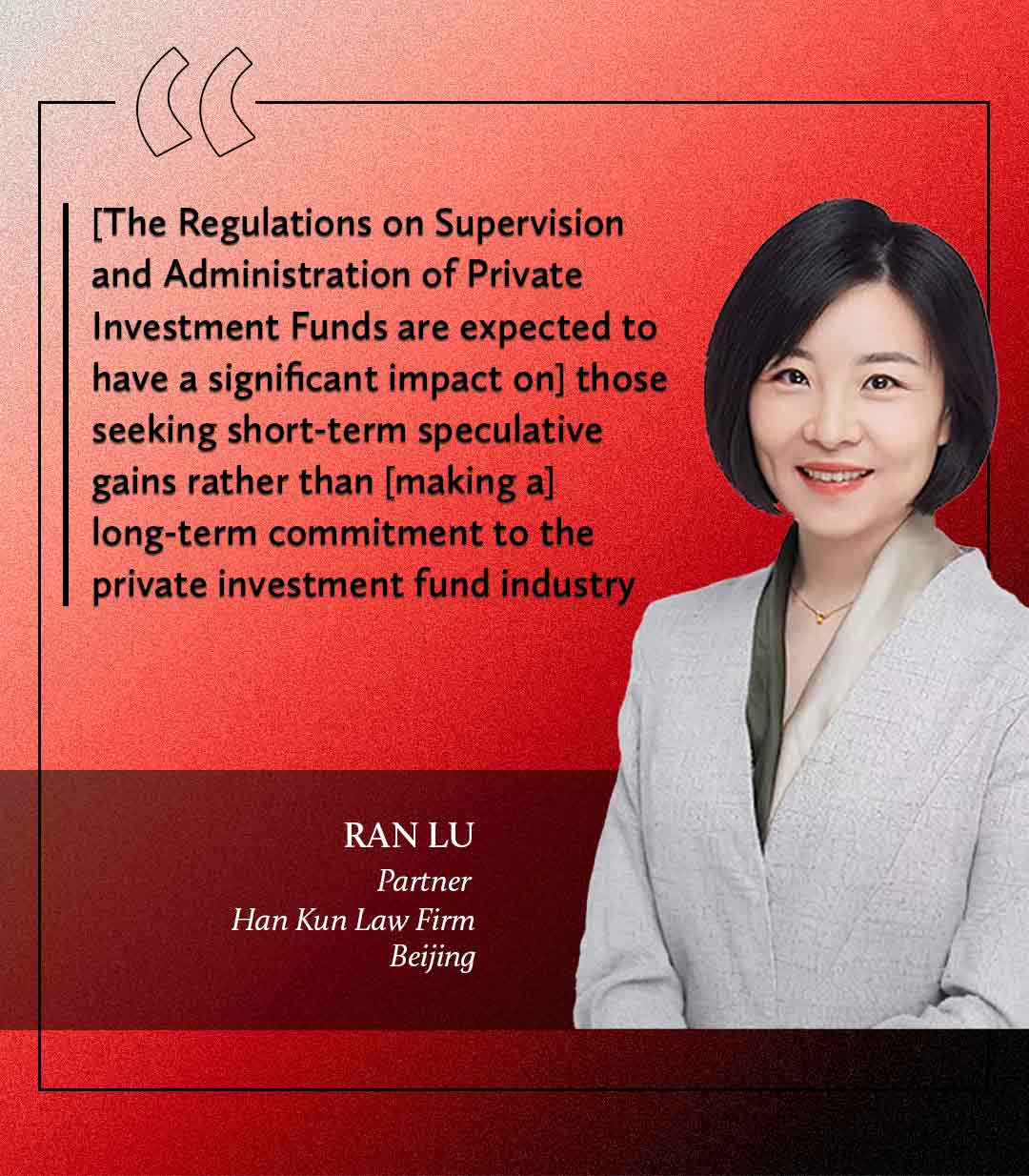Bleak prospects have dealt a challenging hand of enhanced regulations to players in China’s private equity market, adding a wildcard of China/US decoupling and generally giving the industry a good shuffle. However, with or without foreign funds, the game must go on. Luna Jin reports
Texas hold ’em has been dethroned as the most coveted social sport among China’s finance elites, making way for Guandan, an enthralling poker game originating in Jiangsu province. This is now the game of choice for networking with local officials and private entrepreneurs.
A similar transition is evident in the private equity (PE) sphere. A decreased presence of US dollar funds in the Chinese market during the past two years has opened seats at the table for deep-pocketed investors of state-owned backgrounds and government guided funds.
Recognising the distinct investment styles and cultural DNA of these two types of new players, practitioners and service providers are quickly recalibrating their strategies to embrace a new set of game rules.
The present trend line behind the ebbs and flows shows the country’s PE industry in a downward cycle characterised by declining fundraising, investments, transaction volumes and value.
According to VC/PE service provider Zero2IPO, there were 6,510 cases of investment in China’s PE market in the first three quarters of 2023; the disclosed investment amount was RMB507.09 billion (USD71.5 billion). These numbers represent a year-on-year decline of 25.9% and 31.8%, respectively.
At the same time, the domestic regulatory environment is undergoing a process of standardisation. The long-awaited top-level regulatory framework for the industry has finally materialised.
In a historic move, Premier Li Qiang signed a State Council decree in July 2023, introducing the Regulations on the Supervision and Administration of Private Investment Funds. Taking effect on 1 September, this groundbreaking regulation marks China’s maiden foray into overseeing the PE industry on the administrative level, propelling regulatory measures to an elevated realm.
Stacked challenges
On a broad scale, the industry faces formidable challenges and a multitude of changes.
- In the past two years, the US Federal Reserve and other central banks have raised interest rates many times.
- Developed economies have persistently imposed restrictions on investments in China, forcing international capital to redeploy its flow of funds.
- In response, China has fortified regulations governing outbound investment, cross-border transactions and the flow of data, enacting laws and regulations in areas such as data protection, cybersecurity and counter-espionage.
Under such a trend, the direction and focus of legal services have quietly changed. Darren Liang, a partner at Shihui Partners’ Shanghai office, notes that “private equity legal services are no longer homogenised and standardised, but vary from industry to industry, with clear characteristics”.
Despite tightening regulations across multiple fronts, China continues to uphold its commitment of economic opening-up and globalisation. An influx of qualified foreign limited partner (QFLP) funds to the country and a surge of qualified domestic limited partner (QDLP) funds flowing from China to overseas markets bear witness to the robust development of the industry in recent years. International private equity managers play a significant role in these endeavours.
China’s private equity industry is on a trajectory of rapid growth amid a backdrop of uncertainty. As the market matures, it will embrace a proactive mindset in seeking innovation and change. This will define today’s primary market as it prepares to engage in more intricate forms of transactions.
Subdued fundraising, a winter of exits
The year 2023 cast an ominous shadow on the world of investment, as fundraising and exits struggled over treacherous terrain.
On the fundraising front, there was a confluence of factors including the global interest rate hike, intensified by the US-China decoupling, and the country’s below-expectation economic recovery.
This dampened the willingness of overseas limited partners (LPs), especially those in Europe and the US, to contribute to domestic general partners (GPs). Purely financial LPs, in particular, became increasingly demanding in terms of the internal rate of return (IRR) and distribution to paid-in capital (DPI).
With limited funds at their disposal, LPs are more willing to give their money to large GPs with whom they have existing good relationships, and who have a good track record. “In a difficult fundraising environment, the Matthew effect of managers at the fundraising end is ever more pronounced,” says Ursula Li, an equity partner at Zhong Lun Law Firm’s Shanghai office, referring to the trend of established fund sponsors becoming even more successful in fundraising.
Ran Lu, a partner in the Beijing office of Han Kun Law Firm, notes the fundraising period for private equity funds has lengthened in the past few years. It is now more common for first closures to be completed in six to 12 months, and final closures in 18 to 24 months.
“In order to adapt to LPs’ current fundraising requirements, fundraising structures have become more complex,” says Ran. “Renminbi funds mostly adopt parallel structures, multi-parallel structures, linkage structures, umbrella structures, and combinations of the previous structures.”
Since 2021, there has been a significant decline in new fundraising activities within China’s equity investment market. According to the Asset Management Association of China (AMAC), newly filed private equity and venture capital funds stood at RMB446.6 billion by the end of 2022, reflecting a year-on-year decline of 34.67%.
In the first quarter of 2023, newly filed funds amounted to RMB137.6 billion, marking a year-on-year decline of 15.82%.
In August 2023, US President Joe Biden signed an executive order requiring US companies to disclose their investments in China in high-tech areas such as artificial intelligence (AI). The order prohibits venture capital and private equity firms from pouring more money into China’s efforts to develop semiconductors and other microelectronics, quantum computers and certain AI applications.
“Foreign investors, in addition to becoming more cautious, have grown conservative in their approach to investing in China,” says David Yu, a Shanghai and Hong Kong-based founding partner at Llinks Law Offices. “Investors who allocate assets globally have tended to reduce or even halt their investments in the country.”
Adding to the upheaval, in June 2023, Silicon Valley venture capital titan Sequoia announced its decision to spin off its China business into an independent entity. The move came as a seismic jolt, considering Sequoia’s investments had propelled the rise of almost every Chinese internet giant, and the top-tier institution had reaped substantial rewards from its investments in the country.
Yu explains that waning interactions between Sequoia’s Chinese and overseas operations, coupled with the divergent investment needs of LPs in different regions, made a combined approach more detrimental than advantageous.
“Under the trend of de-globalisation, more large-scale funds may follow Sequoia’s lead and bifurcate their local operations into independent entities,” he says.
On the exit front, the pace of IPOs witnessed a significant slowdown as the CRSC launched a series of initiatives in the latter half of 2023, imposing higher quality standards on listed companies.
The capital market’s downturn naturally reverberated into the primary market, driving down project valuations. Consequently, the number of PE/VC-backed IPOs and the raised funds plummeted year-on-year in 2023.
IPOs have always served as the most lucrative exit method for PE/VC institutions, and the preferred avenue for high-quality portfolio companies.
However, Ran, of Han Kun, says that amid the challenges opportunities still abound for bottoming out. “The pressure to exit heightens the significance of DPI considerations, presenting numerous prospects to acquire assets with excellent value,” she says. “Now is a good opportunity to invest, but also a good time for mergers and acquisitions.”
The difficulty of exits has likewise shifted the focus of legal services. Liang, of Shihui, notes that while legal services historically home in on the investment stage, investment funds now exhibit a growing demand for exit-related services.
He identifies three broad opportunities:
- Institutions require assistance in selling equity to other investors through mergers and acquisitions or equity transfers before listing.
- Even after listing, institutions face hurdles in exiting. This necessitates the sale of shares to industrial investors through overall agreement transfers while complying with capital market regulations.
- When funds reach maturity and companies struggle to exit, institutions find themselves negotiating repurchase and exit agreements or enforcing such clauses through dispute resolution mechanisms.
Situations where buyback clauses are triggered have jumped from about 9% in the past to more than 50% now, says Liang. “At the drafting stage of the agreement, it is important to anticipate the subsequent inability to enforce the repurchase clause, so as to optimise the clause and enhance its enforceability under Chinese law,” he says.
Rise of renminbi funds
In recent years, local governments have been pouring investment into the market, aiming to harness social capital and fuel businesses in specific sectors or geographic areas, or to drive the development of particular industries.
The magnitude of this trend becomes evident in the latest data from Zero2IPO: More than 90% of funds raised in the first three quarters of 2023 were in renminbi, with state-owned capital, government-guided funds and other state-backed managers actively driving the market forward.
“Many of the impactful deals have been led by renminbi funds,” says Liang.
However, the blossoming of government-guided industrial funds across the country does not mean easy money for GPs. Chen Zhen, a Beijing-based partner at Fangda Partners, says that while the entry of government-led funds has injected new capital into the private equity industry and activated the market to some extent, it has also raised the bar for investment institutions.
As an example, she says an eligible manager must maintain a spotless compliance record, possess integrity, demonstrate exceptional historical performance, and have a stable investment and management team.
In contrast to private investors, government-led funds often impose specific demands for integration of compliance and commercial considerations – reinvestment and exit rights, in particular.
“Government-led funds may require the investee fund, its manager and their respective affiliates to reinvest in a specific industry or geographic region,” says Chen. “The target amount of reinvestment is generally a multiple of the government-led fund’s contribution or initial payment to the investee fund.”
She says these funds also “implement phased assessment of returns, and establish corresponding incentives and penalties for managers”.
Compared with US dollar funds, which typically invest in early-stage, seed-stage and nascent business models, renminbi private equity demands a shorter investment-to-exit period and greater certainty, and therefore pays more attention to the potential of future IPOs of the investee companies during the investment bidding stage.
“When renminbi funds invest, they consider both the maturity and financial performance of the project itself, as well as its potential for synergising with the local industry,” says Liang, of Shihui. “This means that the target companies of renminbi funds are not typically at an early stage or immature stage.”
Liang says that in renminbi funds backed by state-owned entities, investment teams and legal and risk control teams operate independently and have segregated reporting lines and working conditions.
“They meticulously evaluate investment transactions throughout the process to ensure compliance standards are met,” he says. “Rather than placing the highest priority on the realisation of the business purposes, these funds strive to strike a balance between achieving business objectives and meeting compliance requirements.
“Compared to US dollar funds, the compliance department of renminbi funds plays a relatively more important and vocal role within the organisation. It acts as a gatekeeper, maintaining operational standards of risk control and compliance above and beyond what is required, rather than compromising compliance standards for commercial purposes.”
You must be a
subscribersubscribersubscribersubscriber
to read this content, please
subscribesubscribesubscribesubscribe
today.
For group subscribers, please click here to access.
Interested in group subscription? Please contact us.






